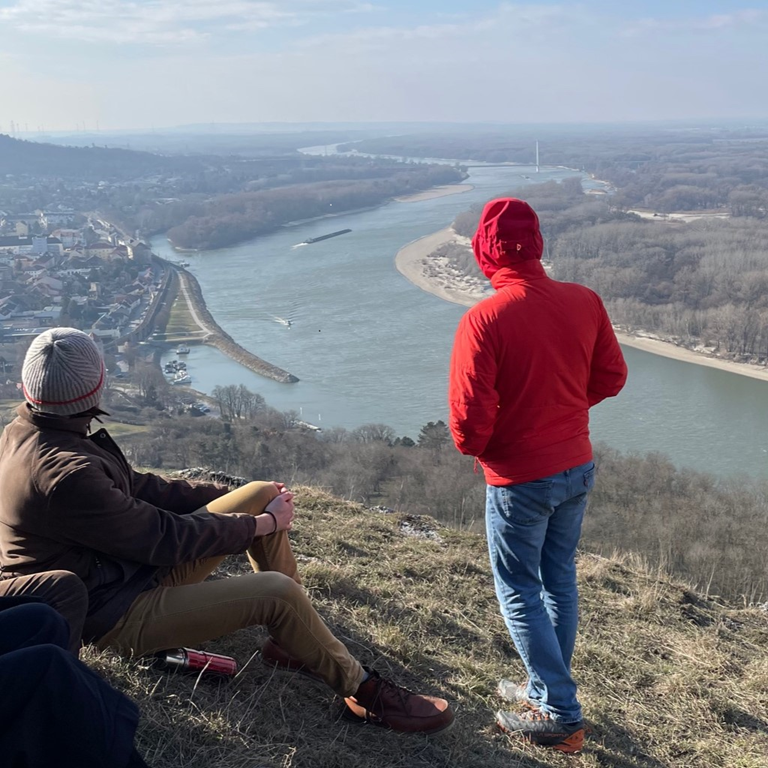
The conference Rethinking Wild Europe took place from 7-8 February 2025 at the University of Vienna. The event was co-organized by CETE-P, the International Society for Environmental Ethics (ISEE) and the Department of Philosophy at the University of Vienna - the host of the event. A total of 47 participants were registered, with 20 joining online. This gathering brought together scholars from different fields to explore the evolving concept of wildness and rewilding in Europe, addressing its ethical, political, and ecological dimensions.
The conference was structured around eight panels, each addressing different aspects of wild(er)ness: Biocultural Conservation, Philosophies of Wilderness, The Urban Wild, Policies of Rewilding, Large Predators in Europe, Politics and Ethics of Animals, Technologies of (Wild)life, and Ethics of Rewilding. Together, these discussions provided a multidimensional perspective on the evolving relationship between humans and the wild.
A total of 25 talks took place, guided by two keynote speakers. First, Monica Vasile explored Europe's rewilding history through three narratives, illustrating how past human interventions and withdrawals continue to shape today's 'wild' landscapes and creatures, from bison to ibex and forests. Second, Martin Drenthen examined the symbolic and philosophical dimensions of rewilding, particularly the return of wolves, whose ambiguous presence challenges not only our sense of belonging to the landscape but also our fundamental beliefs about the world.
Finally, on the 9th of February, participants also had the option to join a guided field trip to the Donau Auen National Park, located about an hour from Vienna by public transport. This excursion provided an opportunity to explore the dynamics of urban nature and the historical interactions between humans and wildlife in the region, as well as to reflect on the evolving relationship between conservation, history, and wild spaces.

The conference Rethinking Wild Europe took place from 7-8 February 2025 at the University of Vienna. The event was co-organized by CETE-P, the International Society for Environmental Ethics (ISEE) and the Department of Philosophy at the University of Vienna - the host of the event. A total of 47 participants were registered, with 20 joining online. This gathering brought together scholars from different fields to explore the evolving concept of wildness and rewilding in Europe, addressing its ethical, political, and ecological dimensions.
The conference was structured around eight panels, each addressing different aspects of wild(er)ness: Biocultural Conservation, Philosophies of Wilderness, The Urban Wild, Policies of Rewilding, Large Predators in Europe, Politics and Ethics of Animals, Technologies of (Wild)life, and Ethics of Rewilding. Together, these discussions provided a multidimensional perspective on the evolving relationship between humans and the wild.
A total of 25 talks took place, guided by two keynote speakers. First, Monica Vasile explored Europe's rewilding history through three narratives, illustrating how past human interventions and withdrawals continue to shape today's 'wild' landscapes and creatures, from bison to ibex and forests. Second, Martin Drenthen examined the symbolic and philosophical dimensions of rewilding, particularly the return of wolves, whose ambiguous presence challenges not only our sense of belonging to the landscape but also our fundamental beliefs about the world.
Finally, on the 9th of February, participants also had the option to join a guided field trip to the Donau Auen National Park, located about an hour from Vienna by public transport. This excursion provided an opportunity to explore the dynamics of urban nature and the historical interactions between humans and wildlife in the region, as well as to reflect on the evolving relationship between conservation, history, and wild spaces.
•• All News
Celetná 988/38
Prague 1
Czech Republic
This project receives funding from the Horizon EU Framework Programme under Grant Agreement No. 101086898.